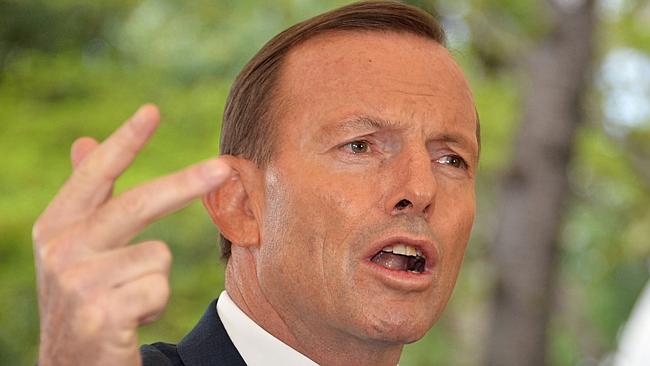Sacked public servant calls on government to allow political criticism from employees
LOVE or hate him, most of us have an opinion about Tony Abbott. But there are some of us who are not allowed to say either way, even anonymously.

MOST people understand that tweeting negative comments about their boss is a fast track to getting the sack — even if those comments are posted anonymously.
But debate is raging this week about whether government staff should be allowed to talk about politics online, and whether they should dob in a workmate who is posting critical comments.
One former public servant who was fired from her Department of Immigration job last year after being linked to Twitter comments criticising refugee policy, has now called on the Attorney General to give staff the freedom to talk openly about politics.
@Kon__K In 1942 the French Vichy government traded Jews. In 2011 the Australian Gillard government purports to trade asylum seekers...
Michaela Banerji, who tweets using the handle @LaLegale, said she reached an out-of-court settlement with the department last month after receiving legal advice that pursuing a case for unlawful termination would expose her to huge legal costs.
The fact that she did not pursue the case means that the issue of whether government staff can comment on politics anonymously is unclear.
“The problem is that the question of whether public servants, as a class of persons, are to be deprived of the constitutionally implied freedom of political communication as private citizens, remains untested,” she said this week in an open letter to Attorney General George Brandis.
She has called on Mr Brandis to declare that all public servants are able to comment on politics, as private citizens.
The comments come after it was revealed this week that a new social media policy from the Prime Minister’s office stated that employees posting political criticism, even if it is anonymous, could be sacked.
In an unusual move, colleagues were also encouraged to dob each other in.
“If an employee becomes aware of another employee who is engaging in conduct that may breach this policy, there is an expectation that the employee will report the conduct to the department,’’ the policy states.

Employees of government departments have to be careful in expressing their views publicly because they work with both Liberal and Labor governments, and are expected to perform their duties in an apolitical manner.
International human rights law expert Professor Sarah Joseph said the issue of whether everyone was entitled to express views on politics is worth debating.
They cannot express harsh or extreme criticism of the government, which raises questions about their ability to work “professionally, efficiently or impartially.”
Professor Joseph, who is director of the Castan Centre for Human Rights Law, said restricting an employees’ right to speak represented a clash between principles of freedom of speech and “freedom of contract”.
Many private employees are subject to contracts that they cannot bag their bosses in public, but when it comes to government employees, restriction of speaking rights should be considered more closely, she said.
“Especially when it relates to the right to engage in political speech ... which is something most people take for granted,” Professor Joseph said.
She said that “political speech” was more highly valued than simply being able to criticise a private employer.
And because so many people made political comments, it was less likely that an anonymous Twitter account could be linked back to a public servant and lead to a perception of bias.
She said the policy should also reflect how easy it is for people to express political views publicly these days.
Before the popularity of social media, staff would have to write an opinion piece for a newspaper or otherwise broadcast their views on radio or television for example.
“I think social media is a great site for political expression and I think there is scope for the policy to be more accepting of public expression rather than shutting it down,” Prof Joseph said.




